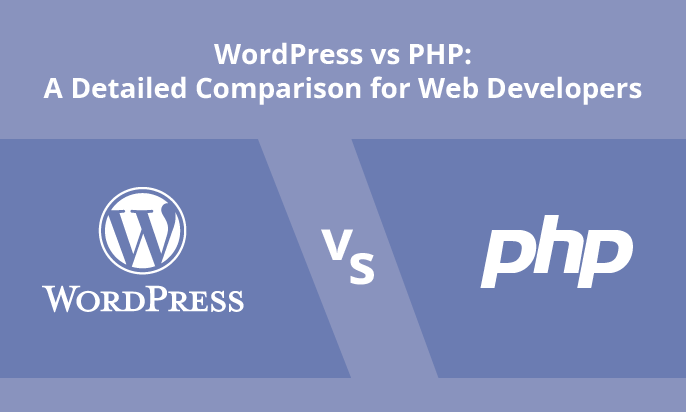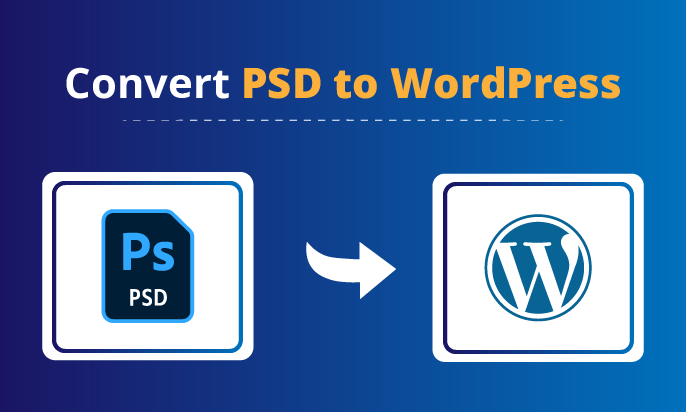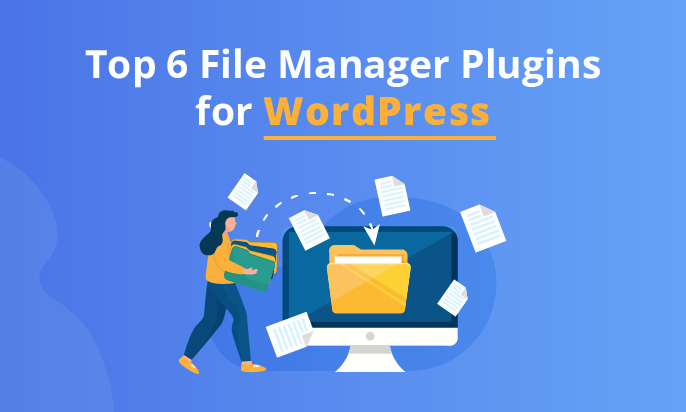WordPress, a user-friendly content management system built on PHP and MySQL, has revolutionized the way non-technical users create and manage websites. On the other hand, PHP is a foundational scripting language that offers greater flexibility for web development and requires a deeper understanding of coding.
This comparative analysis explores “WordPress vs PHP”, highlighting the ease of WordPress for beginners and the robust, flexible capabilities of PHP for creating web applications. It aims to guide web developers in making informed decisions based on their specific project needs and expertise levels.
Overview of WordPress
WordPress, a free and open-source content management system (CMS), is built on PHP and MySQL, designed to facilitate website creation and management for users ranging from non-technical to developers. It is the most popular CMS globally, powering over 43% of the web, thanks to its user-friendly interface that simplifies the creation and management of websites.
Key Features and Benefits
- Ease of Use: WordPress is renowned for its simplicity, allowing users and publishers to easily manage content while providing developers with the complexity needed for advanced features.
- Flexibility and Extensibility: Users can extend or modify the platform for commercial projects without any licensing fees, using themes and plugins to add custom functions.
- Community Support: With a vast community of active developers and a wide selection of themes from third-party companies, users have extensive support and resources at their disposal.
- Built-in Blogging: WordPress includes powerful publishing tools and built-in blogging functionalities, making it ideal for content-focused sites.
- SEO and Multilingual Support: The platform is search engine optimized and offers multilingual support to cater to a global audience.
- Cost-Effectiveness: It is generally more wallet-friendly compared to custom coding solutions, making it a preferred choice for small to medium-sized enterprises.
Developer Features and Customization
- Plugin and Theme Systems: Developers can utilize the plugin system and theme system to create a tailored user experience or add specific functionalities.
- Advanced Application Framework: Includes custom content types and a REST API which facilitate the development of complex applications.
- Security and Maintenance: Regular updates help maintain security, although reliance on third-party plugins can introduce vulnerabilities which are mitigated by security plugins.
WordPress is suitable for a variety of website types, from simple blogs to complex enterprise websites and applications, offering a comprehensive solution for web development that balances user-friendliness with powerful developer options [3].
Overview of PHP
PHP, officially known as Hypertext Preprocessor, is a robust general-purpose scripting language tailored specifically for web development. Created by Rasmus Lerdorf in 1994, PHP has evolved significantly over the years to support a wide range of web development activities. It is particularly renowned for its ability to generate dynamic web pages efficiently.
Key Features of PHP
- Server-Side Scripting: PHP is executed on the server, and it is capable of managing dynamic content, handling forms, and accessing databases.
- Flexibility and Control: Developers have complete control over the design and functionalities, which allows for the creation of unique user interfaces tailored to specific project needs.
- Compatibility: PHP runs on various platforms such as Windows, Linux, Unix, and more, and is compatible with almost all servers used today like Apache and IIS.
- Database Connectivity: It supports a wide array of databases, including MySQL, Oracle, and SQLite, making it a versatile choice for backend development.
- Open-Source: As an open-source language, PHP is free to use, which reduces development costs significantly.
Development Aspects
- Learning Curve: While PHP is easy to learn for beginners, mastering its frameworks like Laravel and CodeIgniter requires a deeper understanding of coding.
- Security: PHP offers extensive security features but requires developers to be proactive in implementing security best practices to prevent potential vulnerabilities.
- Performance: PHP scripts execute faster than many other scripting languages, which can enhance website performance.
- Community Support: There is a vast amount of learning materials and community support available online, which facilitates problem-solving and innovation.
PHP’s capability to embed directly into HTML, combined with its rich feature set, makes it a powerful tool for creating sophisticated web applications and services. It offers developers the flexibility to build bespoke solutions from scratch, which can be more secure and tailored than many pre-built platforms.
Comparing WordPress and PHP
Performance and Speed
- Processing Speed: PHP typically ensures faster processing, which is crucial for web applications that require high performance.
- Updates and Bug Fixes: WordPress offers more consistent updates and bug fixes, enhancing security and user experience over time.
Development Efficiency and User Experience
- Ease of Development: WordPress allows for quicker website setup with its vast array of themes and plugins, whereas PHP demands more time and expertise for a fully functional system.
- User Interface: WordPress is celebrated for its user-friendly graphical interface, making it more appealing for beginners and non-developers.
Flexibility and Control
- Customization and Control: PHP offers extensive control over web development, allowing for intricate and customized solutions.
- Resource Availability: WordPress boasts a large community with millions of themes and plugins, providing a wealth of resources that enhance flexibility and ease of use.
Security and Cost
- Security Features: PHP developers have more control over security implementations, although WordPress also provides robust built-in security options.
- Development Costs: WordPress is generally more budget-friendly, especially for users who require less custom coding.
Suitability and Community Support
- Target User Base: WordPress is ideal for non-developers or those who prioritize ease of use and community support, while PHP is suited for those who need detailed control over their web applications.
- Community and Support: The WordPress community is larger, offering a broader range of resources and easier access to skilled professionals.
SEO and Hosting
- SEO Capabilities: WordPress is inherently SEO-friendly, enhancing Google rankings through its optimized CMS structure.
- Hosting Flexibility: PHP provides more flexibility in hosting options, which can be a decisive factor depending on the project’s hosting needs.
Conclusion and Recommendations
Through this detailed comparison between WordPress and PHP, we have explored the distinct advantages and characteristics of each, catering to different needs and skill levels in web development. WordPress emerges as a user-friendly platform ideal for those seeking ease of use, extensive community support, and cost-effectiveness, making it a favored choice for creating and managing websites without extensive technical knowledge. On the other hand, PHP stands out for its flexibility, control, and the power it offers developers to create tailored web applications and services from scratch, demanding a deeper coding proficiency but providing greater customization and performance capabilities.
Understanding the specific requirements of your project and your expertise level is crucial in choosing between WordPress and PHP. Whether prioritizing quick setup and ease of use with WordPress or valuing the control and detailed customization offered by PHP, both platforms have their unique strengths and applications. The choice between them should be informed by the project’s scope, the desired level of control and customization, and the long-term maintenance and performance considerations. In the evolving landscape of web development, staying informed and adaptable to both platforms can significantly enhance your skills and project outcomes.
FAQs
1. Which is more advantageous for enhancing my website, WordPress or PHP?
WordPress is generally favored for enhancing a website’s Google ranking because it offers numerous built-in features and extensions that support technical SEO, making it easier to maintain fresh and refined content.
2. Should I choose web development or WordPress for building my website?
The choice between web development and WordPress depends on your specific requirements, budget, and technical expertise. Web development provides greater control, customization, and potential performance but requires substantial coding skills and resources. Conversely, WordPress is more user-friendly for those without development experience and accommodates a broad array of website types.
3. Is knowledge of PHP necessary for WordPress development?
No, you do not need to know PHP to start with WordPress, as it is as straightforward as using Microsoft Office for basic use. However, if you intend to modify or develop new plugins or themes for WordPress, a basic understanding of PHP is beneficial, though deep expertise in PHP is not essential.
4. Does PHP offer better security compared to WordPress?
PHP is considered to offer more robust security features compared to WordPress. It provides superior data sanitization, compliance, and secure coding practices, which helps in mitigating potential security risks associated with website technologies.




